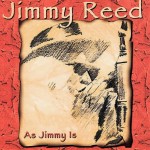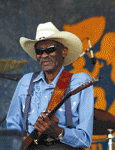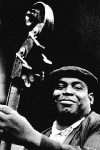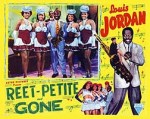|
|

¤ Jimmy Reed [1925-1976]
No other bluesman has ever experienced the success that came to Jimmy Reed from 1953 to 1966, 14 of his singles hit Billboard’s R&B Top 20. Even more impressive, 12 of these recordings “crossed over” to the Billboard POP 100, demonstrating the breath of his appeal to both black […]

¤ Otis Rush was born in Philadelphia, Mississippi, on April 29, 1934. As a youngster, Otis Rush taught himself to play harmonica and guitar. Otis Rush is left-handed and as many other left-handed blues guitarists, he plays a right-handed guitar upside down and left-handed. He worked with his mother and […]

¤ Elmore James
[1918-1963]
When the lick “Dust My Blues”, an electrified reinvention of Robert Johnson’s venerable “Dust My Broom”, hit vinyl in 1952, the blues would never be tha same again. Elmore James had taken the deep, dark, acoustic blues of the Delta and turned on the electric power: […]

Dixon first ran away from home when he was eleven. As he recalled in his autobiography, I Am the Blues, “I ran out in the country to a place 11 miles from home called Bovine, Mississippi…. It was nothing like I expected–man, you’re talking about a shack…. I thought our house was […]

Sam ‘Lightnin’ Hopkins [1912-1982] was known as “the Godfather of Texas Blues.” As a songwriter and storyteller, he was both prolific and original. As a gutarist and lyricist, he had the uncanny ability to improvise words and music simultaneously. As a poet and performer, Hopkins is remembered as one of blues most accomplished […]

¤ Lee Dorsey [1924-1986]
Lee Dorsey epitomized the loose, easygoing charm of New Orleans R&B perhaps more than any other artist of the ’60s. Working with legendary Crescent City producer/writer Allen Toussaint, Dorsey typically offered good-time party tunes with a playful sense of humor and a loping, funky backbeat.
∇ ‘Working […]

Effervescent saxophonist Louis Jordan was one of the chief architects and prime progenitors of the R&B idiom. His pioneering use of jumping shuffle rhythms in a small combo context was copied far and wide during the 1940s . . . A heart attack silenced this visionary in 1975, but not before he acted […]
|
|







